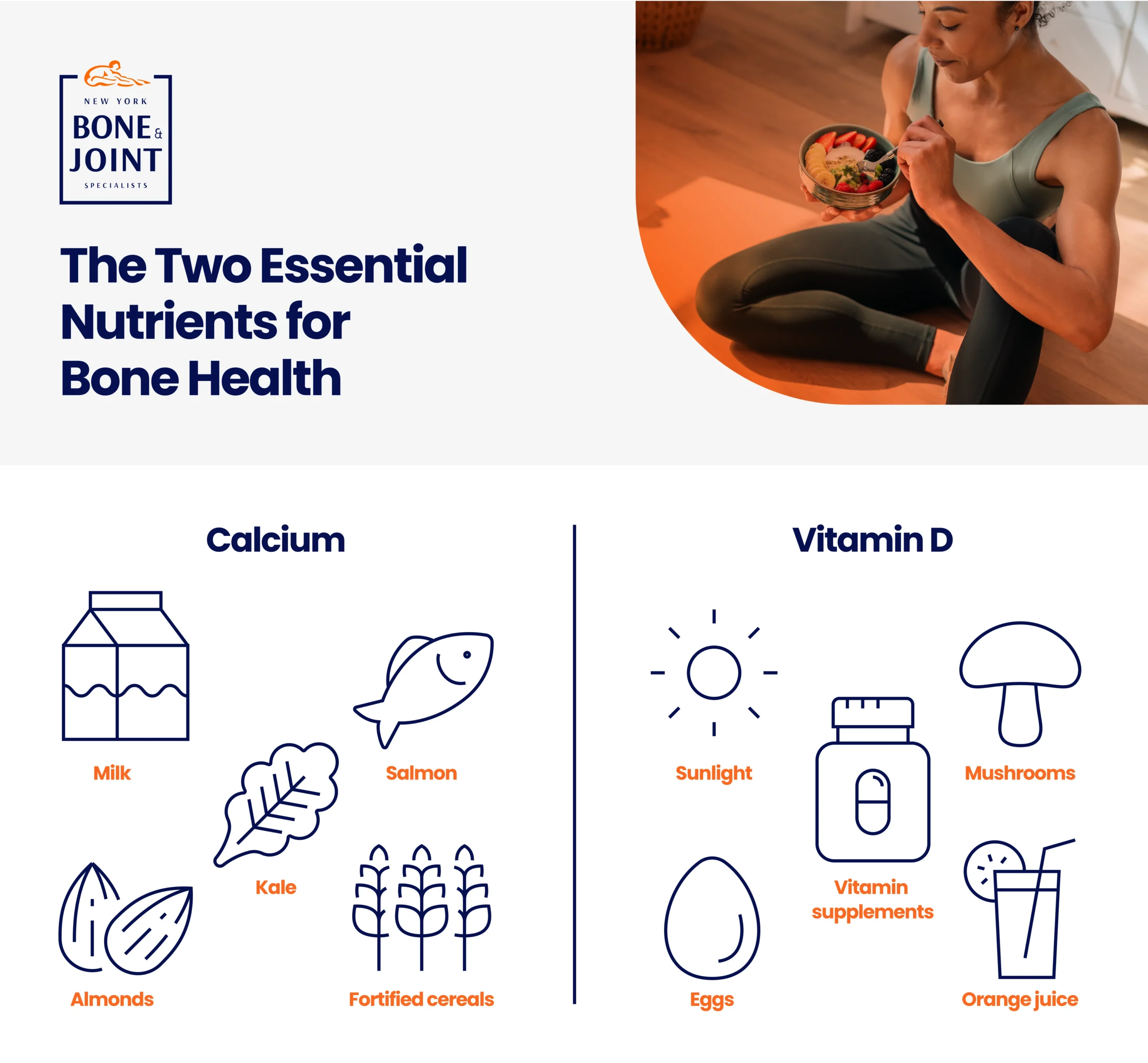The secret to stronger bones? It’s what you put on your plate.
Exercise builds strong bones, but so does what you eat every day. Nutrition plays a vital role in maintaining healthy bones. But what minerals and vitamins are essential for bone health? And how do you get those essential nutrients into your body? Read on to find out more about the correlation between nutrition and bone health.
The importance of bone health
Just like muscles and ligaments, bones are the foundation of a healthy body. Strong bones enable you to, quite simply, move. But when your bones lose mass and weaken, you could be at risk of osteoporosis, a debilitating disease affecting 10 million Americans over the age of 50. Women with osteoporosis stand a greater chance of a hip fracture, which can be difficult to recover from at more advanced ages.
Yet osteoporosis can be prevented with a diet high in calcium — the building block of strong bones. Since your body doesn’t produce calcium on its own, you have to get it from what you eat. If you don’t take in enough calcium, your body robs your bones of calcium, which softens your bones. Fortunately, calcium is plentiful in many foods and supplements.
The two essential nutrients for bone health

While calcium tops the list of essential nutrients for bone health, vitamin D is just as important. Let’s review those nutrients, the foods rich in them, and, most importantly, how to get them into your diet.
Calcium
Not only does calcium build strong bones, it also boosts circulation and increases muscle strength. As mentioned, the only way to get calcium into your bones is through diet and supplements.
How much calcium do you need?
The recommended daily intake varies by age and sex, but it ranges from 1,000 to 1,200 milligrams.
What foods are rich in calcium?
Think green leafy vegetables such as kale, broccoli, and bok choy. Sardines, salmon, yogurt, nut milk, and tofu are other good sources of calcium. This nutrient is also found in bread, pasta, and grains. In addition, many cereals, juices, and beverages are fortified with calcium.
Can you take supplements?
Yes, calcium supplements can give you your daily dose of calcium if you don’t get enough through your diet. However, calcium supplements are best absorbed when taken in doses of 500 milligrams at a time. So, if you need 1,000 milligrams a day, take one 500-milligram tablet two times a day. One word of caution: Limit your calcium supplement intake because too much may lead to kidney stones and heart problems.
Vitamin D
Vitamin D helps your body absorb calcium. The two go together to build strong bones. Low levels of vitamin D can cause soft bones to be vulnerable to fracture.
How much vitamin D do you need?
From age one to 70, the recommended daily dose is 600 International Units (IU). Yet research supports taking up to 1,000 IU a day.
What is the best way to get vitamin D?
Unlike calcium, vitamin D isn’t abundant in many foods. Although salmon, certain mushrooms, vitamin D-fortified milk, and orange juice do have the nutrient, you’re better off getting your vitamin D from supplements. Basking in sunlight is another way to get vitamin D, but keep your time in the sun brief, as prolonged exposure to UV rays can increase your risk of skin cancer. You can slather on sunscreen, but be aware it interferes with the body’s ability to produce vitamin D.
Phosphorus, magnesium, and protein are other nutrients that are beneficial for bone health, but the two most important are calcium and vitamin D. Fill your plate and take supplements with those nutrients, and you’ll have strong bones for life.
Maintain healthy bones
As a leading sports medicine center, the doctors at New York Bone & Joint Specialists take a holistic approach to orthopedic care, including diet and exercise. We’ll review your bone health and help you maintain strong bones through a customized wellness plan fit just for you. Contact us today for a consultation.




